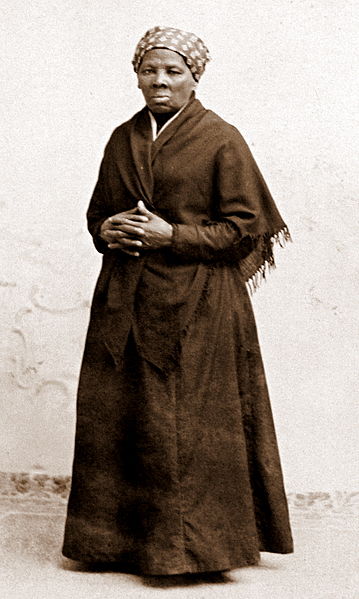The Moses of her time: Who was Harriet Tubman?
Often described Moses of her time, the Christian former slave and prominent abolitionist Harriet Tubman is set to replace former slave owner on the front of the new US $20 note.

Born into slavery in Maryland, America in the 19th Century, Tubman walked to freedom in 1849, before going back to liberate hundreds of others.
She said she relied entirely on God as she walked the near-90 miles from Dorchester County, Maryland to Delaware.
"I always tole God, 'I'm gwine to hole stiddy on you, an' you've got to see me through.'"
Although her exact route is unknown, it is thought she would have walked along the Choptak river, guided by the North Star.
When she realised she had crossed the invisible state line to Philadelphia, the beginning of the free North, she described looking "at my hands to see if I was de same person now I was free. Dere was such a glory ober de fields, and I felt like I was in heaven."
It was not long before Tubman returned to rescue others from the hell she had escaped, risking her own freedom in the process.
She made 19 trips to the South, helping to deliver at least 300 other slaves, despite there being a $40,000 reward for her capture.
She would tunnel them through the so-called "underground railroad", a series of safe houses used to transport slaves from the South up to the free North.
Fearless, Tubman's motto was simply, "I can't die but once".
She later became a Union Spy in the Civil war and prominent in the woman's suffrage movement, but her beginnings were as a slave.
In September 1849, the death of her master prompted the then-27-year-old to gather her two younger brothers, Ben and Henry, and they escaped.
They hid for three weeks, with the help of their recently freed father. After a $100 bounty was made for each of them, the boys became fearful and returned, but Harriet pressed on.
Born Araminta Ross, Tubman took her mother's first name and her husband's surname in order to evade capture. John Tubman was a free man, who stayed in South as she fled North.
The first of her rescues was a personal affair. Upon hearing that her niece, Kessiah Jolley Bowley, was set to be auctioned, Tubman set her sights on rescuing her.
In collaboration with Bowley's husband, they managed to surreptitiously place the winning bid for Bowley and her three children. Fleeing the state, the family continued through USA up to Canada.
This began a long train of rescues, in which she would contact slaves and arrange to meet them eight to ten miles from their plantations. They would always flee on a Saturday night, as they would not be missed until Monday morning, because of the Sabbath.
When their owners did post missing signs often not until Monday, Tubman had people in place to take them down.
Tubman would listen carefully to the voice of God for direction, only going where she felt he lead.
"I never met any person of any colour who had more confidence in the voice of God," fellow abolitionist Thomas Garrett said of her.
Although Tubman boasted that she "never lost a passenger", she was not a soft touch.
She was armed with a revolver and openly admitted that she would be willing to shoot a reluctant escaped slave.
"Yes, if he was weak enough to give out, he'd be weak enough to betray us all and all who had helped us, and do you think I'd let so many die just for one coward man?"
Although she never actually did it, she came close once: "I told the boys to get their guns ready, and shoot him. They'd have done it in a minute; but when he heard that, he jumped right up and went on as well as anybody."
Dubbed Moses by the abolitionist William Lloyd Garrisson, Tubman finally freed her three younger brothers – Ben, Henry and Robert – in 1854, and rescued her parents in 1856.
In 1863 she led Union forces in the Combahee River Raid which led to 700 slaves being liberated in South Carolina.
"I nebber see such a sight," she said. "We laughed, an' laughed, an' laughed."











